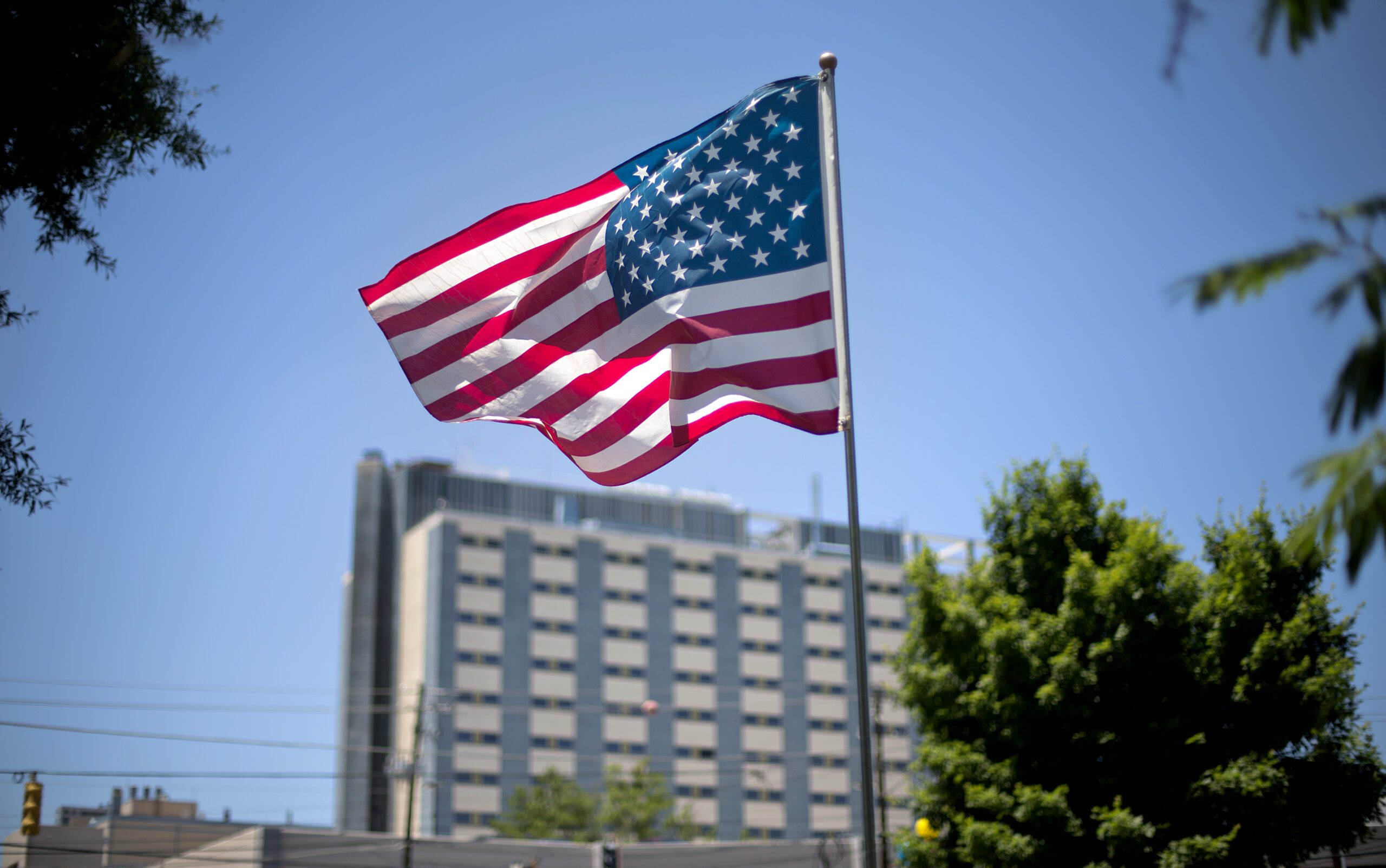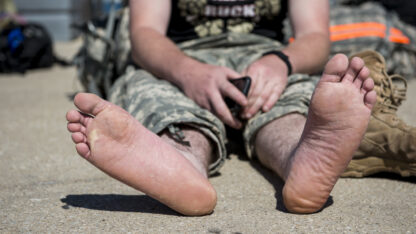Symposium stresses “it takes a village” to prevent veterans’ suicides

An American flag flies in front of the Atlanta VA Medical Center in Atlanta. The executive director of a veterans’ advocacy group wrote a letter last week asking the Department of Veterans Affairs to investigate the “veteran and service member suicide epidemic.”
David Goldman / Associated Press
Steve Schmid, who formerly served in the Army National Guard, says he’s witnessed firsthand soldiers struggling with mental illness—and that his unit was not equipped to have conversations about mental health.
“We are raised within the military community to not really have problems and not talk about problems,” said Schmid, who was honorably discharged and now serves as the senior director for Highland Rivers Behavioral Health’s Intensive Community and Veterans Services. “You continue to drive on with the mission.”
Data suggests that many veterans and soldiers struggle with trauma, PTSD, and many other invisible wounds. According to the U.S. Department of Veterans Affairs, more than 6,200 veterans died by suicide in 2019.
Schmid, and Melanie Dallas, the CEO of Highland Rivers Behavioral Health, were guests on Friday’s edition of “Closer Look.”
They talked with show host Rose Scott about a recent symposium and how their organization is working to address veteran suicide.
Dallas further discussed the importance of veterans having access to resources and being connected to communities of support that understand their experiences.
“People feel isolated,” said Dallas. “And in isolation, things go downhill very quickly and we need to get them connected.”








